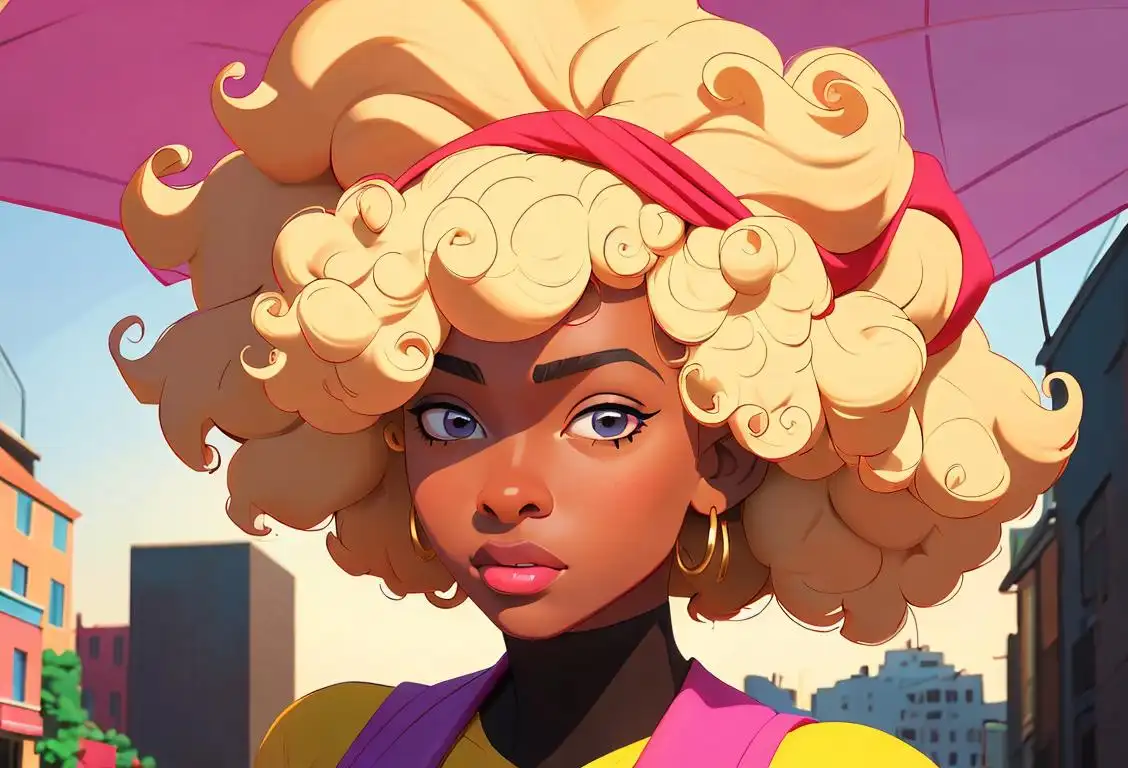National Afro Day

Hey there! Have you heard about National Afro Day? Well, get ready to let those luscious locks loose and celebrate this fabulous day dedicated to embracing curly hair and all its glory!
When is Afro Day?
It's national afro day on the 16th September.
The Internet History of National Afro Day
Did you know that the internet has played a significant role in the establishment and recognition of National Afro Day? It all started with a wave of online discussions and a growing movement to promote natural hair textures and celebrate afros.
Social media platforms like Twitter and Instagram became the epicenter of the afro revolution, with countless users sharing their stunning afro selfies, hair care tips, and empowerment stories. Influencers, hair stylists, and beauty bloggers joined forces to spread the message of self-love and acceptance, urging people to embrace and celebrate their natural hair.
As the momentum grew, people started using hashtags like #NationalAfroDay, #EmbraceYourCurls, and #FroPower to gather and connect. Online communities sprung up, creating safe spaces for individuals to share their hair journeys, exchange styling techniques, and provide support and encouragement to one another.
The internet served as a catalyst, amplifying the voices and experiences of those who had long been marginalized or made to feel ashamed of their natural hair. It sparked conversations about hair discrimination, promoting inclusivity, and the importance of representation in media and workplaces.
Did You Know?
Did you know that the term 'afro' is short for 'Afro hairstyle,' which gained popularity in the 1960s and '70s? This iconic hairstyle was known for its voluminous, rounded shape and became a symbol of black pride and cultural identity.
History behind the term 'Afro'
1960s-1970s
The Rise of the Afro
During the 1960s and 1970s, the term 'afro' became popularized as a way to describe a natural hairstyle worn predominantly by African Americans. This hairstyle, also known as the 'fro,' featured voluminous, curly hair that was styled into a halo-like shape. The afro became a symbol of Black pride and cultural expression, closely associated with the Civil Rights Movement and the fight for racial equality.
1960s
Political and Cultural Influence
In the 1960s, the afro hairstyle gained immense political and cultural significance. It became a statement of rejecting Eurocentric beauty standards that favored straight hair and assimilation. The afro was a powerful visual representation of embracing natural Black beauty and challenging societal norms. Activists and artists, such as Angela Davis and Jimi Hendrix, proudly flaunted their afros, making it a symbol of Black identity and empowerment.
1970s
Mainstream Popularity
By the 1970s, the afro had reached mainstream popularity and became a significant trend in fashion and popular culture. It transcended racial boundaries and was embraced by people from various backgrounds. Celebrities like Diana Ross and Pam Grier further popularized the afro, making it a fashionable and iconic hairstyle of the era. The term 'afro' solidified its position in everyday language and became widely recognized.
2000s-present
Revival and Continued Relevance
In the 2000s, there was a resurgence of interest in natural hair and the afro hairstyle. With increased cultural awareness and movements promoting self-acceptance, many individuals have embraced their natural hair texture, including the afro. The term 'afro' has expanded beyond just a hairstyle and is now used to describe a broader cultural aesthetic and style. It continues to be celebrated for its historical significance and representation of Black beauty.
Did you know?
Did you know that the term 'afro' is short for 'Afro hairstyle,' which gained popularity in the 1960s and '70s? This iconic hairstyle was known for its voluminous, rounded shape and became a symbol of black pride and cultural identity.Tagged
awareness funFirst identified
30th June 2015Most mentioned on
16th September 2020Total mentions
839Other days
Nurses Day
Former Prisoner Of War Recognition Day
Press Day
Handloom Day
Heroes Day
Memorial Day
Dance Day
Bestfriends Day
Liberation Day
Love Your Pet Day









